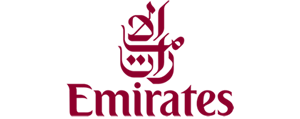 Emirates carried 15.8 million passengers as the largest international airline in 2020
Emirates carried 15.8 million passengers as the largest international airline in 2020
What a difference a year makes. Over the summer travel months of July and August, Emirates handled nearly 1.2 million customers at its hub, compared to 402,000 customers during the same period in 2020, highlighting the safe and smooth resumption of international travel to and through Dubai.
In fact, in 2020, Emirates was the largest international airline carrying over 15.8 million passengers, according to IATA’s latest World Air Transport Statistics 2021.
Since Dubai re-opened to international visitors, Emirates has gradually restored its network and flight schedules from just a handful of cities in July 2020 to over 120 destinations today, with more flights to be layered onto over 20 Emirates routes by October.
Always aiming to provide the best possible travel experience, particularly during a turbulent time for international travel, Emirates has continued to deliver innovative new customer services, ensure the health and safety of its customers and employees, and provide the most updated travel information for customers across the world.
These investments over the past 12 months have enabled Emirates to facilitate the resumption of travel, while enhancing customer experience.
Accelerated digital innovations
Biometrics, self-service check-in kiosksIn 2019, Emirates began testing and implementing biometric technology at various customer journey touchpoints at the airport.
In the past year, the airline fast-tracked its biometric technology roll-out and today, Emirates has over 30 biometric cameras in active operation at its Dubai airport hub, including at check-in counters, at the entrances of its First and Business Class lounges, and select boarding gates.
Since implementation, over 58,000 customers have used this convenient, contactless and secure verification option to access the Emirates Lounge, and more than 380,000 customers have used biometric gates to board their flight.
Emirates has seen an upward trend in customers opting to use its biometric channels since the pandemic, and it plans to expand the number of boarding gates equipped with biometric scanners.
The airline has also worked closely with Dubai airport stakeholders including the immigration team (GDRFA) to re-activate Smart Gates that enable eligible travellers to cruise through passport control on arrival and departure in a matter of seconds, using new contactless technology.
Enabling customers to check-in, receive their boarding pass, choose seats on board, and drop off their bags, Emirates’ new self-service check-in and bag drop kiosks have seen increasing usage since its introduction in September 2020.
In July and August alone, over 568,000 customers used this convenient service which enabled them to skip queuing at the counter, breeze through the airport and proceed directly to immigration.
Following the positive reception from customers, Emirates will introduce 6 additional self-service check-in and bag drop kiosks in its First and Business Class terminal area this month.
In the past year, Emirates also introduced new technology to make it easier for customers to report delayed or damaged bags on emirates.com, reducing paperwork and stress, improving transparency, and enabling Emirates to serve customers better in terms of checking, tracing and resolving baggage related queries.
Latest travel requirements —COVID-19 travel information hub, IATA Travel Pass, integration with UAE Health Authorities. In an environment where travel requirements change daily at country, region or airport level, Emirates has pulled out all stops to provide the latest information to its customers.
Tapping on its global network and teams on the ground to collect and verify the latest entry requirements for each destination, Emirates’ COVID-19 information hub, updated at least once daily, has become one of the top authoritative sources of information for travellers.
Emirates has also been a forerunner in adopting digital verification solutions for travel, from adopting the IATA Travel Pass to partnering with the UAE health authorities to enable seamless digital checks for COVID-19 travel documentation.
These projects deliver multiple benefits from better customer experiences to the reduced use of paper, and improved efficiency and reliability in travel document checks.
Emirates was one of the first airlines to sign up for IATA’s Travel Pass in April and today offers this convenience to customers fly between Dubai and 10 cities, with plans to expand the service across its network as IATA continues to expand and secure service providers in more markets.
By October, the airline would have extended the implementation of IATA Travel Pass for customers at all of its destinations.
Health and safety
Throughout the past year, Emirates had worked closely with the authorities and its aviation partners to ensure the health and safety of all travellers and employees at the airport, even as health protocols continually evolved across the world.
Even before the World Health Organization officially declared COVID-19 a pandemic, Emirates had already implemented enhanced cleaning and disinfection protocols at all its customer touchpoints at the airport and onboard.
At the airport, Emirates also installed protective shields at all check-in counters and implemented physical distancing in all areas.
All its bio-safety protocols are continually reviewed and updated in line with the latest medical guidance.
Emirates has also tapped on its partnership with the UAE’s Aviation X-lab innovation incubator programme to pilot robot cleaning trials in its signature lounges at Dubai airport.
These robots use special technology to eliminate most viruses and ensure a healthier environment.
In addition to being one of the first airlines to roll-out PPEs (personal protection equipment) for its frontline employees back in February 2020, when COVID-19 vaccines became available Emirates implemented a company-wide campaign to encourage employees to protect themselves and others in an effort that resulted in over 95% of all employees being fully vaccinated.
